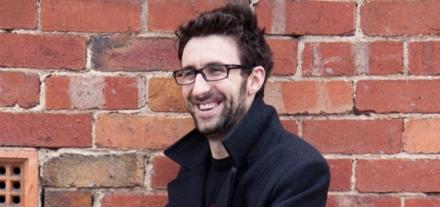
The Live Comedy Association has published a report into the effects of Coronavirus on the live comedy industry, and launched its #SaveLiveComedy campaign.
“This report is a sobering and important read for the entire comedy industry. I hope that this can convince the relevant parties of the need to intervene and provide assistance where needed. I am convinced that the LCA has a vital role to play in this process," says comedian Nish Kumar
#SaveLiveComedy has one central request, asking the UK and national governments to ensure that comedy is made explicitly eligible for Oliver Dowden & Rishi Sunak’s announced emergency arts funding. Most performers in comedy are freelancers, so have been hit particularly hard by Covid19, falling through the cracks and missing out on the support that has been offered so far.
Comedy has a long history of being overlooked as an artform, having never received any public funding from the Department for Digital, Culture, Music, and Sport (DCMS). Comedy has never been officially recognised as an art by arts funding bodies across the nations of the UK, the same bodies that will be distributing this week’s announced £1.57 billion for the Arts.
This is despite comedy being a grassroots creative industry, accessible and inclusive to all, no matter your income or where you live. Ticket prices are cheaper than almost any other artform, and comedy takes places in every nation and region of the country, in dedicated spaces but also in pubs, music venues, and theatres.
Oliver Dowden, Secretary of State for Digital, Culture, Media and Sport, has already said that grants and loans would aim to preserve "crown jewels" in the arts sector. Currently there is grave concern within the industry that comedy will be overlooked when allocations are being considered.
“We risk extinguishing an entire generation of comedic voices unless the government provides financial support. Comedy has been far better at providing representation than other art forms, we are accessible for audiences and performers alike but if you take away our stages and our ability to earn money the accessibility goes and only the richest survive. I don’t think I trust the richest and most privileged in society to be writing the policy and the jokes," says comedian Kiri Pritchard-McLean
“Stand up has long been dismissed and ignored by arts funding bodies despite being one of the most engaging, exciting and popular forms of live theatre we have,” says comedian Fern Brady.
The Live Comedy Association, recently set up to help comics through the pandemic which has seen venues closed for over three months and the live comedy world – where almost all people involved are freelancers – devastated, has carried out a survey among its members. The results below make chilling reading.
The Impact of Covid-19 on the Live Comedy Industry - Survey Results
In June of this year the LCA conducted a survey to analyse the effect of the current pandemic on the industry. 663 responses were gathered from individuals working all over the country and across the comedy industry - comics, club owners, promoters, stage management, arts venue programmers, agents, publicists, photographers, producers, and many more.
The results provide a picture of an industry in crisis. At risk are the venues that have been the bedrock of our grassroots comedy landscape for the last forty years, the promoters that have championed all of our current household names, and the next generation of comic voices who will go on to tour arenas worldwide and have their shows distributed by international streaming platforms.
Below are a few key headlines from those surveyed. The full report can be read here.
● A third of comedy venues believe they’ll be forced to close within the next six months, with 77.8% facing closure within the next year.
● Over 45% of respondents have already given serious thought to leaving comedy because of the pandemic, with just under 60% of all respondents predicting they’ll need to leave before February 2021 unless we’re able to get back to performances.
● 73.5% of respondents have found their mental health negatively impacted by job & industry uncertainty during the pandemic.
● Over three quarters of performers have earnt less than 5% of their pre-pandemic estimated income from online performances of any kind.
● Only 17.1% of promoters expect that after Coronavirus they’ll be running 100% of the regular events they promoted before lockdown.
It is clear from the report that the live comedy industry is in desperate need of help. Without assistance venues will go bankrupt, jobs will be lost, comics will quit and many will never come back again. The effect of this on our theatres, festivals, and TV & radio output will be enormous.
 “Comedy has always supported itself in the shadow of the better-funded arts. The British live comedy scene is the best and most vibrant in the world, and over the past 20 years has exploded like no other area of the creative industries, luring talent from all over the globe in a way few sectors do. This is one of the fastest-growing, most egalitarian and fashionable pockets of the arts, and it produces work on a fraction of the budgets enjoyed by theatre, opera, or anything else. Any rescue plan for the performing arts needs to include it," says comedian Mark Watson
“Comedy has always supported itself in the shadow of the better-funded arts. The British live comedy scene is the best and most vibrant in the world, and over the past 20 years has exploded like no other area of the creative industries, luring talent from all over the globe in a way few sectors do. This is one of the fastest-growing, most egalitarian and fashionable pockets of the arts, and it produces work on a fraction of the budgets enjoyed by theatre, opera, or anything else. Any rescue plan for the performing arts needs to include it," says comedian Mark Watson
#SaveLiveComedy
The Live Comedy Association is launching a public-facing awareness campaign on Thursday 9th July at 10am, supporting the LCA’s calls for comedy to be eligible for the government’s emergency arts funding and highlighting the crisis facing the industry.
The full campaign can be found at savelivecomedy.co.uk (live from 10am, Thurs 9th July), where the public will be able to:
● Sign an open letter addressed to the UK and national governments, Arts Council England, Arts Council of Wales, Arts Council of Northern Ireland, and Creative Scotland to ask them to make comedy eligible for the previously announced government arts funding.
● Read the full report into the LCA’s emergency industry survey, showing why comedy faces such a crisis this time, from clubs facing closure to comics leaving the industry in incredibly high numbers.
The campaign also encourages the public and those in the industry to post a picture of their most memorable live comedy experience on Thursday 9th July with the hashtag #SaveLiveComedy. This could be a picture of the time you saw a household name comic work through new material in a tiny basement venue, or a picture of you trying out stand-up for the first time at your local open mic. This will help to increase public awareness of the plight of the industry, and also be a joyful reminder of how brilliant live comedy can be too



